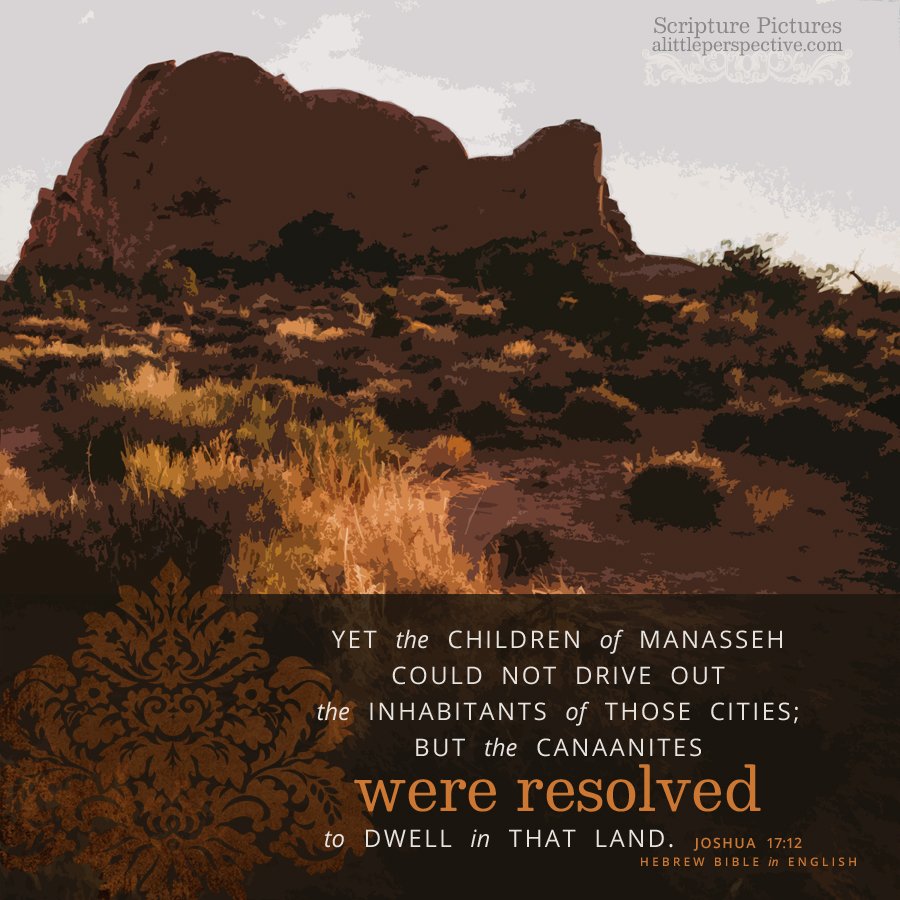Read Joshua 17 here (text coming …) or at Bible Gateway.
The Hebrew paragraphs:
17:1-13 {s} The borders of Manasseh
17:14-18 {p} Ephraim and Manasseh receive more than one lot
Jos 17:1-18 Chiastic Structure:
How does a lot fall to Manessah?
In the history of the Bible, the casting of lots was used to determine the will of God. Casting lots was like rolling the dice, however today we do not know what was employed, which was cast, or thrown. Numerous passages in the Hebrew Testament indicate that the casting of lots was used for making important decisions. Aaron, on the Day of Atonement, chose by lot one of the goats for a scapegoat to bear the sins of the people into the wilderness (Lev 16:7-10, 21, 22). The division of the land after the conquest was accomplished by lot (Jos 14:2; 18:6; 1 Chr 6:54). The service of the Temple, including the music (1 Chr 25:7, 8), the doorkeepers (26:13), and the supply of wood fuel for the altar were regulated by casting lots (Neh 10:34). The principle underlying this usage is stated:
The lot is cast into the lap, but the decision is wholly from YHVH. Pro 16:33
The same usage persisted in Greek Testament times. The soldiers at the foot of the cross cast lots for the clothing of Jesus (Mat 27:35), thus fulfilling prophecy (Psa 22:18); although, they were not trying to determine the will of God, but rather, who would receive His garment by chance. Within the church the successor of Judas Iscariot among the apostles was selected by lot (Acts 1:26). In this instance the choice was preceded by prayer. As the church was filled with the Holy Spirit, who leads into all truth, the practice of casting lots was discontinued, as the leading of the Holy Spirit revealed the will of God.
– Edited from The Encyclopedia of the Bible


















Leave a Reply